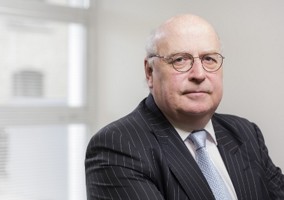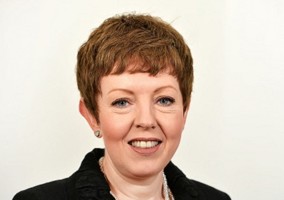Yesterday was a big day for fans of parliamentary scrutiny of charities, with the government’s preferred candidate to become the next chair of the Charity Commission appearing before the Digital, Culture, Media and Sport Committee for what is basically a job interview in public.
And boy did it kick off. MPs turned up ready to give Baroness Stowell a tough time regarding her experience, or lack of, in the charity sector, and her record as a Conservative peer and until recently a member of the government.
It was clear from the start that they were in no mood to rubber stamp the appointment, and over the course of an hour and half they repeatedly asked Stowell to explain why she was the best candidate when she has so little experience.
And for her part, Stowell gave the same answer - that she has not been selected on the basis of her sector experience, which by her own admission is limited, having only joined the board of two charities within the last nine months, but that she brought other skills and experiences, particularly when it comes to the issue of dealing with declining public trust.
This is problematic because the job spec for the chair does include a requirement that there is knowledge of the sector, and lack of sector experience is something that the current chair William Shawcross has been criticised for.
I actually think there may be an argument to be had about how close you want the chair of the regulator to be to the sector. The chair typically gives up all trusteeships, and had the chair had any significant recent involvement with a charity which subsequently found itself in trouble, there would still be a clear conflict of interest.
The charity sector, like all others, is prone to group think, and having someone with fresh eyes could be very valuable.
However nobody is making these arguments. And Stowell failed to properly articulate them yesterday. While she spoke of her track record in entering new sectors with a fresh perspective and being successful, she did not explain why this is something that the charity sector needs right now.
Her argument is that her experience makes her the best candidate to tackle the decline in public trust, and that charity-specific knowledge is not needed here. The MPs for their part did not seem to question the analysis about the public trust problem.
Lack of passion
Even more troubling though was that when pressed she didn’t seem able to muster much passion or enthusiasm for the sector beyond a few generic platitudes about it .
Has she really not engaged at all with sector until nine months ago? I find that hard to believe. In fact when I was researching her a few weeks ago I discovered she had run a marathon for charity. She has also turned up to the last two All Party Parliamentary Group on Charities and Volunteering meetings, which suggest she is taking preparation for the role seriously (even though these are held in Parliament, anyone is welcome to attend).
But she did not mention any informal involvement with the sector that could have reassured the committee.
Questions for DCMS
Some of the questions aimed at Stowell should clearly have been aimed at the appointing minister, Matt Hancock.
The committee was evidently deeply concerned about the process. And based on the letter to Hancock, they have been frustrated with the department’s method of selecting candidates for some time.
At the end of last year, for example, there was significant criticism of Elisabeth Murdoch’s appointment to the Arts Council.
It looks as though Stowell's appointment was the straw that broke the camel’s back.
The letter states: “On 19 December, the Committee wrote to you explaining that we thought it regrettable that candidates for public roles of the kind we scrutinise apparently continue to be drawn from a narrow group of establishment figures.”
It seems MPs feel they had given the department a clear warning, but it pressed on regardless.
The context is that there are potentially wider political issues at play here, and the sector should bear that in mind before drawing too many firm conclusions about the committee’s criticisms of Stowell herself.
Where now?
Hancock has stood by the appointment. But charity leaders are busily writing letters and calling for action.
Assuming that Stowell does not withdraw her application, I think the upshot of yesterday is that her job will become even harder.
Sector bodies were clear that their criticism is not personal, but they are concerned about the process. This distinction must remain clear if they are to continue to argue for wider reform of the process.
Stowell should be judged on how she handles the role going forward. Yesterday was not a great start, but not one that cannot be overcome.
|
Related articles












